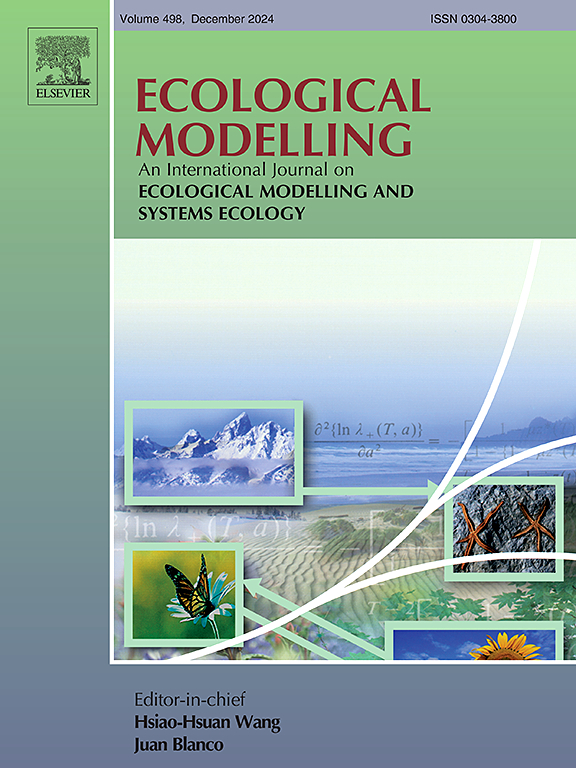Empirical dynamic modeling for prediction and control of pest populations
IF 2.6
3区 环境科学与生态学
Q2 ECOLOGY
引用次数: 0
Abstract
Insect pests pose a threat to humans by jeopardizing food security in agricultural systems, acting as vectors for infectious diseases, and damaging forests and other ecosystems. Despite decades of research, effective pest management remains challenging. Incomplete understanding of the mechanisms behind pest population dynamics limits our ability to anticipate outbreaks. Hence, pest management is often reactive, meaning control actions are taken once outbreaks have already begun, allowing for damage to occur. Here we show that a data-driven model can effectively predict outbreaks, allowing us to optimize control strategies, targeting pests before outbreaks occur. Specifically, we explore empirical dynamic modeling paired with stochastic dynamic programming to keep insect populations within acceptable bounds. We show that this framework reduces outbreaks in several simulated and empirical scenarios. Our study provides a promising framework to reduce losses from pests.
害虫种群预测与控制的经验动态模型
害虫危害农业系统的粮食安全,是传染病的传播媒介,破坏森林和其他生态系统,对人类构成威胁。尽管进行了数十年的研究,但有效的有害生物管理仍然具有挑战性。对害虫种群动态背后机制的不完全理解限制了我们预测暴发的能力。因此,有害生物管理往往是被动的,这意味着一旦疫情开始就采取控制行动,从而导致损害发生。在这里,我们展示了一个数据驱动的模型可以有效地预测疫情,使我们能够优化控制策略,在疫情发生之前针对害虫。具体而言,我们探索了与随机动态规划相结合的经验动态建模,以使昆虫种群保持在可接受的范围内。我们表明,这一框架在几个模拟和经验情景中减少了疫情。我们的研究为减少害虫造成的损失提供了一个有希望的框架。
本文章由计算机程序翻译,如有差异,请以英文原文为准。
求助全文
约1分钟内获得全文
求助全文
来源期刊

Ecological Modelling
环境科学-生态学
CiteScore
5.60
自引率
6.50%
发文量
259
审稿时长
69 days
期刊介绍:
The journal is concerned with the use of mathematical models and systems analysis for the description of ecological processes and for the sustainable management of resources. Human activity and well-being are dependent on and integrated with the functioning of ecosystems and the services they provide. We aim to understand these basic ecosystem functions using mathematical and conceptual modelling, systems analysis, thermodynamics, computer simulations, and ecological theory. This leads to a preference for process-based models embedded in theory with explicit causative agents as opposed to strictly statistical or correlative descriptions. These modelling methods can be applied to a wide spectrum of issues ranging from basic ecology to human ecology to socio-ecological systems. The journal welcomes research articles, short communications, review articles, letters to the editor, book reviews, and other communications. The journal also supports the activities of the [International Society of Ecological Modelling (ISEM)](http://www.isemna.org/).
 求助内容:
求助内容: 应助结果提醒方式:
应助结果提醒方式:


